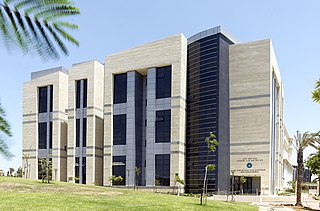
Cognitive science is the interdisciplinary, scientific study of the mind and its processes. It examines the nature, the tasks, and the functions of cognition. Mental faculties of concern to cognitive scientists include perception, memory, attention, reasoning, language, and emotion; to understand these faculties, cognitive scientists borrow from fields such as psychology, artificial intelligence, philosophy, neuroscience, linguistics and anthropology. The typical analysis of cognitive science spans many levels of organization, from learning and decision-making to logic and planning; from neural circuitry to modular brain organization. One of the fundamental concepts of cognitive science is that "thinking can best be understood in terms of representational structures in the mind and computational procedures that operate on those structures."

Neuroscience is the scientific study of the nervous system, its functions, and its disorders. It is a multidisciplinary science that combines physiology, anatomy, molecular biology, developmental biology, cytology, psychology, physics, computer science, chemistry, medicine, statistics, and mathematical modeling to understand the fundamental and emergent properties of neurons, glia and neural circuits. The understanding of the biological basis of learning, memory, behavior, perception, and consciousness has been described by Eric Kandel as the "epic challenge" of the biological sciences.

Cognitive neuroscience is the scientific field that is concerned with the study of the biological processes and aspects that underlie cognition, with a specific focus on the neural connections in the brain which are involved in mental processes. It addresses the questions of how cognitive activities are affected or controlled by neural circuits in the brain. Cognitive neuroscience is a branch of both neuroscience and psychology, overlapping with disciplines such as behavioral neuroscience, cognitive psychology, physiological psychology and affective neuroscience. Cognitive neuroscience relies upon theories in cognitive science coupled with evidence from neurobiology, and computational modeling.
Computational neuroscience is a branch of neuroscience which employs mathematics, computer science, theoretical analysis and abstractions of the brain to understand the principles that govern the development, structure, physiology and cognitive abilities of the nervous system.
The following outline is provided as an overview of and topical guide to neuroscience:

The Santa Fe Institute (SFI) is an independent, nonprofit theoretical research institute located in Santa Fe, New Mexico, United States and dedicated to the multidisciplinary study of the fundamental principles of complex adaptive systems, including physical, computational, biological, and social systems. The institute is ranked 24th among the world's "Top Science and Technology Think Tanks" and 24th among the world's "Best Transdisciplinary Research Think Tanks" according to the 2020 edition of the Global Go To Think Tank Index Reports, published annually by the University of Pennsylvania.
The Helen Wills Neuroscience Institute (HWNI) at the University of California, Berkeley was created in 1997 as the Center for Neuroscience. It was renamed in 2000, in recognition of the $10 million bequest from tennis champion and Berkeley alumna Helen Wills, who won 31 Grand Slam titles, including 19 in singles.
Neurophilosophy or the philosophy of neuroscience is the interdisciplinary study of neuroscience and philosophy that explores the relevance of neuroscientific studies to the arguments traditionally categorized as philosophy of mind. The philosophy of neuroscience attempts to clarify neuroscientific methods and results using the conceptual rigor and methods of philosophy of science.

Stephen Grossberg is a cognitive scientist, theoretical and computational psychologist, neuroscientist, mathematician, biomedical engineer, and neuromorphic technologist. He is the Wang Professor of Cognitive and Neural Systems and a Professor Emeritus of Mathematics & Statistics, Psychological & Brain Sciences, and Biomedical Engineering at Boston University.
Neuroinformatics is the emergent field that combines informatics and neuroscience. Neuroinformatics is related with neuroscience data and information processing by artificial neural networks. There are three main directions where neuroinformatics has to be applied:

Olaf Sporns is Provost Professor in Psychological and Brain Sciences at Indiana University and scientific co-director of the university's Network Science Institute. He is the founding editor of the academic journal Network Neuroscience, published by MIT Press.
Hyunjune Sebastian Seung is President at Samsung Electronics & Head of Samsung Research and Anthony B. Evnin Professor in the Princeton Neuroscience Institute and Department of Computer Science. Seung has done influential research in both computer science and neuroscience. He has helped pioneer the new field of connectomics, "developing new computational technologies for mapping the connections between neurons," and has been described as the cartographer of the brain.

Gustavo Deco is an Argentinian and Italian professor and scientist. He serves as Research Professor at the Catalan Institution for Research and Advanced Studies and Full Professor (Catedratico) at the Pompeu Fabra University, where he is Director of the Center of Brain and Cognition and head of the Computational Neuroscience Group. In 2001 Deco was awarded the international prize of Siemens "Inventor of the Year" for his contributions in statistical learning, models of visual perception, and fMRI based diagnosis of neuropsychiatric diseases..

The Princeton Neuroscience Institute (PNI) is a center for neuroscience research at Princeton University. Founded in the spring of 2004, the PNI serves as a "stimulus for teaching and research in neuroscience and related fields" and "places particular emphasis on the close connection between theory, modeling, and experimentation using the most advanced technologies." It often partners with Princeton University's departments of Psychology and Molecular Biology.
Newton Howard is a brain and cognitive scientist, the former founder and director of the MIT Mind Machine Project at the Massachusetts Institute of Technology (MIT). He is a former professor of computational neurology and functional neurosurgery at Georgetown University. He is a Memeber of the Congregation of Oxford and was a professor at the University of Oxford, where he directed the Oxford Computational Neuroscience Laboratory. He is also the founder and former director of MIT's Synthetic Intelligence Lab, the founder and the Vic Chairman of the Center for Advanced Defense Studies and the chairman of the Brain Sciences Foundation. Professor Howard is also a senior fellow at the John Radcliffe Hospital at Oxford, a senior scientist at INSERM in Paris and a P.A.H. at the CHU Hospital in Martinique.

The Department of Brain and Cognitive Sciences at the Massachusetts Institute of Technology, Cambridge, Massachusetts, United States, engages in fundamental research in the areas of brain and neural systems, and cognitive processes. The department is within the School of Science at the MIT and began initially as the Department of Psychology founded by the psychologist Hans-Lukas Teuber in 1964. In 1986 the MIT Department of Psychology merged with the Whittaker College integrating Psychology and Neuroscience research to form the Department of Brain and Cognitive Sciences.
Claudia Clopath is a Professor of Computational Neuroscience at Imperial College London and research leader at the Sainsbury Wellcome Centre for Neural Circuits and Behaviour. She develops mathematical models to predict synaptic plasticity for both medical applications and the design of human-like machines.

Kanaka Rajan is a computational neuroscientist in the Department of Neurobiology at Harvard Medical School and founding faculty in the Kempner Institute for the Study of Natural and Artificial Intelligence at Harvard University. Rajan trained in engineering, biophysics, and neuroscience, and has pioneered novel methods and models to understand how the brain processes sensory information. Her research seeks to understand how important cognitive functions — such as learning, remembering, and deciding — emerge from the cooperative activity of multi-scale neural processes, and how those processes are affected by various neuropsychiatric disease states. The resulting integrative theories about the brain bridge neurobiology and artificial intelligence.

Leslie and Susan Gonda Multidisciplinary Brain Research Center is a multidisciplinary neuroscience institution in Israel. It is affiliated with Bar-Ilan University.













